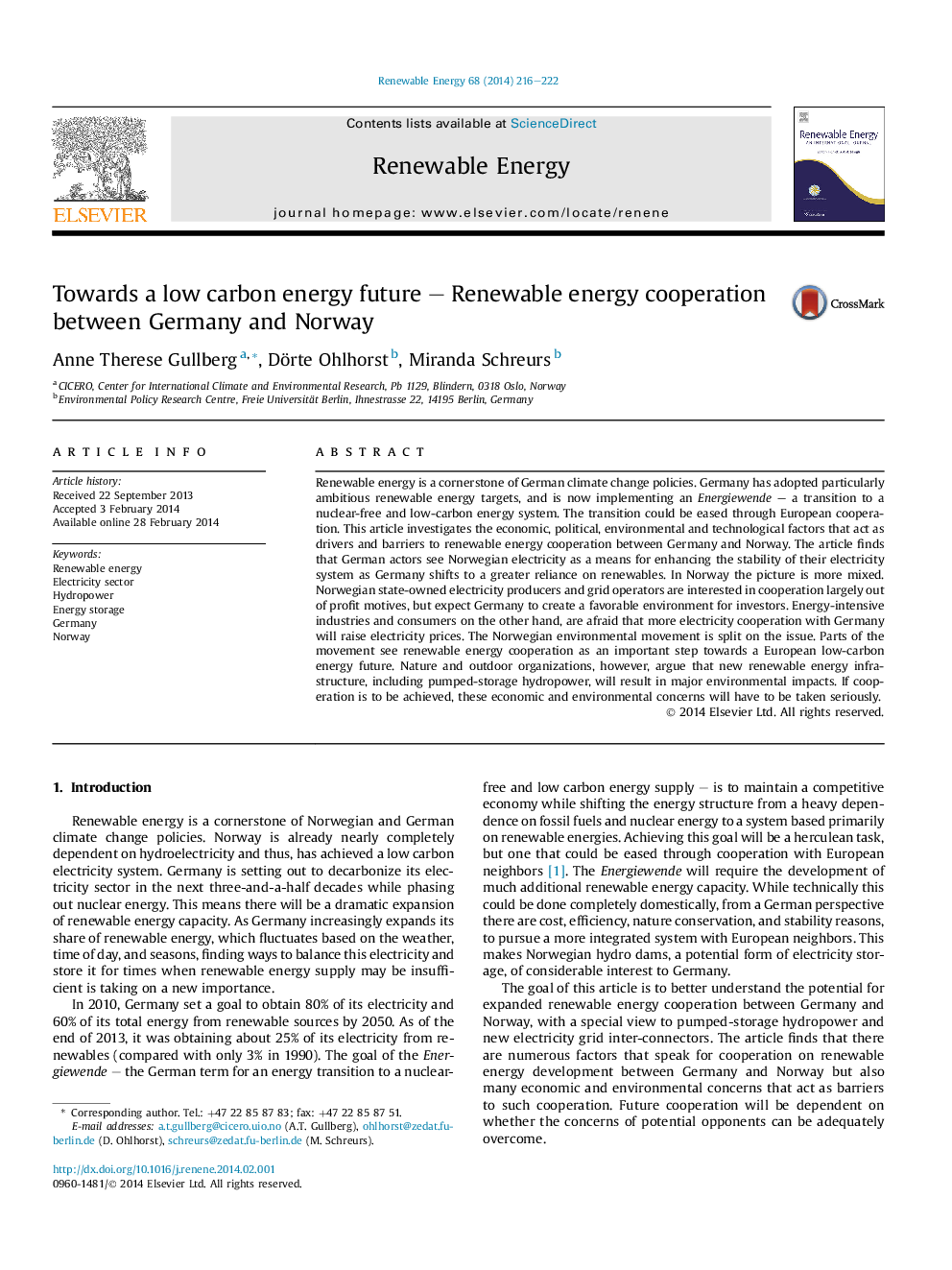| کد مقاله | کد نشریه | سال انتشار | مقاله انگلیسی | نسخه تمام متن |
|---|---|---|---|---|
| 300126 | 512470 | 2014 | 7 صفحه PDF | دانلود رایگان |
• The German Energiewende requires balancing power.
• We examine drivers and barriers to renewable energy cooperation between Germany and Norway.
• Such cooperation will enhance the stability of the German electricity system.
• German actors are interested in renewable energy cooperation with Norway.
• Economic and environmental concerns will have to be taken seriously if cooperation is to be achieved.
Renewable energy is a cornerstone of German climate change policies. Germany has adopted particularly ambitious renewable energy targets, and is now implementing an Energiewende – a transition to a nuclear-free and low-carbon energy system. The transition could be eased through European cooperation. This article investigates the economic, political, environmental and technological factors that act as drivers and barriers to renewable energy cooperation between Germany and Norway. The article finds that German actors see Norwegian electricity as a means for enhancing the stability of their electricity system as Germany shifts to a greater reliance on renewables. In Norway the picture is more mixed. Norwegian state-owned electricity producers and grid operators are interested in cooperation largely out of profit motives, but expect Germany to create a favorable environment for investors. Energy-intensive industries and consumers on the other hand, are afraid that more electricity cooperation with Germany will raise electricity prices. The Norwegian environmental movement is split on the issue. Parts of the movement see renewable energy cooperation as an important step towards a European low-carbon energy future. Nature and outdoor organizations, however, argue that new renewable energy infrastructure, including pumped-storage hydropower, will result in major environmental impacts. If cooperation is to be achieved, these economic and environmental concerns will have to be taken seriously.
Journal: Renewable Energy - Volume 68, August 2014, Pages 216–222
